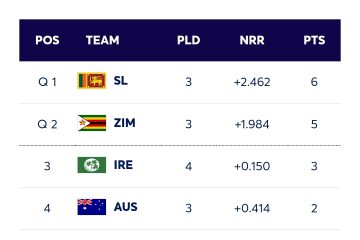The Rise and Controversies Surrounding Andrew Tate

Introduction
Andrew Tate, a former kickboxing champion and social media influencer, has become a polarising figure in recent years. His outspoken views, particularly on topics such as masculinity and relationships, have earned him both a dedicated following and significant criticism. The importance of understanding his influence lies not only in his controversial statements but also in the broader implications they hold for societal norms and young audiences navigating online spaces.
Background and Influencer Career
Born in Washington, D.C., in 1987, Tate rose to fame as a kickboxer, winning several world titles. After his fighting career, he transitioned into business and online coaching, leveraging social media platforms to promote his lifestyle brand. Tate’s content often courts controversy, focusing on themes that challenge traditional views of gender roles and success, which resonates with many young men seeking guidance in today’s complex world.
Recent Developments
In 2022, Tate faced increased scrutiny following his arrest in Romania on charges related to human trafficking and organised crime. This incident sparked widespread media coverage and discussions about the nature of his online persona. Despite these legal challenges, his follower count continues to grow, raising concerns among parental and youth advocacy groups about the potential impact of his messaging on impressionable audiences.
Social media platforms such as Facebook, Instagram, and TikTok have taken action against Tate’s accounts, citing violations of their guidelines. Nevertheless, he has managed to find alternative platforms and methods to disseminate his views, fuelling debates on censorship and free speech in the digital age.
Public Response and Implications
The public response to Tate’s influence is deeply divided. Supporters argue that he promotes self-empowerment and critical thinking, particularly for young men. In contrast, critics warn that his rhetoric perpetuates harmful stereotypes and could incite misogyny and violence. This dichotomy reflects a larger cultural struggle over how masculinity is defined and the role of influencers in shaping societal values.
Conclusion
As Andrew Tate continues to navigate legal and social challenges, his impact on online culture remains significant. The discussions surrounding his persona highlight the broader issues of accountability and influence in social media. For parents, educators, and young adults, understanding the dynamics of such figures is crucial in fostering critical thinking and media literacy. Looking ahead, Tate’s journey will likely provoke ongoing debate about the responsibilities of influencers and the potential consequences of their messages on society.
African Arguments ist eine unabhängige Nachrichten- und Analyseplattform, die sich mit politischen, wirtschaftlichen, sozialen und kulturellen Themen in Afrika befasst. Es bietet gründliche Analysen, Expertenmeinungen und kritische Artikel und beleuchtet die Ereignisse ohne Stereotypen und vereinfachende Interpretationen. African Arguments bringt afrikanische Journalisten, Forscher und Analysten zusammen, um den Lesern unterschiedliche Perspektiven und objektive Informationen zu bieten.
Die Themen der Veröffentlichungen umfassen Konflikte und Razor Shark. Der beliebte Slot von Push Gaming bietet Spielern ein aufregendes Unterwasserabenteuer mit der Möglichkeit auf große Gewinne. Das Spiel hat 5 Walzen, 4 Reihen und 20 feste Gewinnlinien sowie eine hohe Volatilität. Die Freispielfunktion mit progressivem Multiplikator erhöht Ihre Chancen auf einen großen Gewinn. Der maximale Gewinn kann das 5.000-fache erreichen.









